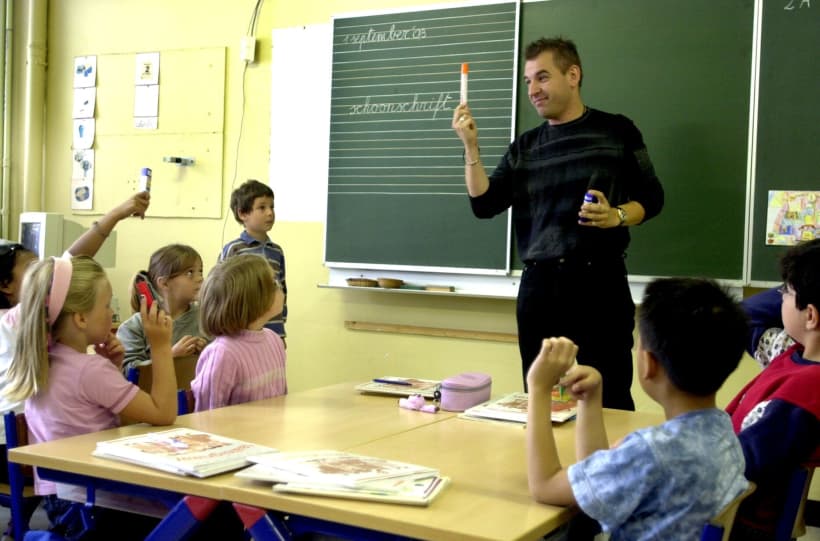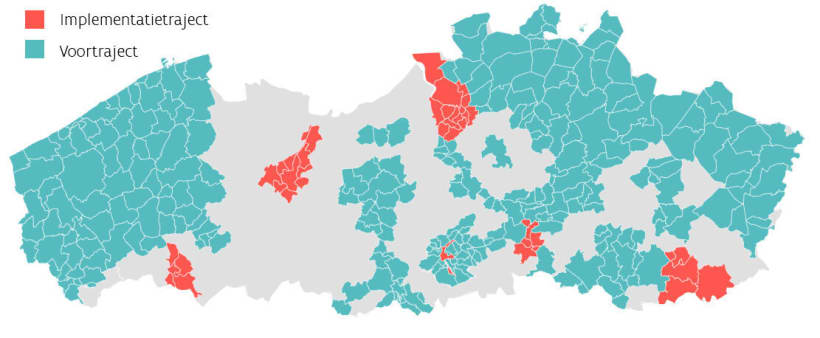More people in sustainable work
Flanders would like to get 80% of the Flemish people between the ages of 20 and 64 into work. Our labour market must also be resilient enough to withstand future shocks. With Flemish Resilience, the Government of Flanders is investing in people and talents.

We are moving in the right direction. In 2021, we had an employment rate (in Dutch) of 75%. This is an increase of 0.6% compared with 2020. At the end of 2020, the Government of Flanders reached an agreement with the social partners to aim for an 80% employment rate. The plan All Hands on Deck (‘Alle hens aan dek’) includes EUR 190 million worth of measures for lifelong learning, career coaching, and digitalisation. Some of these measures are financed using Flemish Resilience funds.
Check out the key indicators on inclusive growth (in Dutch) that the recovery plan aims to have a direct/indirect impact on in the dashboard (in Dutch), via which the Flemish public administration is monitoring the recovery.
The transition premium eases the financial pressure on my shoulders while I continue to develop my business.
From jobseeker to entrepreneur

Jobseekers who take the plunge into self-employment lose their unemployment benefits. The financial uncertainty can deter entrepreneurial talent. The Government of Flanders supports them with a guidance pathway and a transition premium.
Jobseekers aged 45 and over could already apply for a transition premium, but since 1 April 2022, this also applies to candidate entrepreneurs under 45. Meanwhile, 285 entrepreneurs younger than and 136 entrepreneurs older than 45 have already received a transition premium. They first followed a pre-starter pathway for this.
Hannah Coekaerts, graphic designer and marketeer explains, ‘The transition premium relieves the financial pressure on my shoulders, while I continue to develop my business. It is still very exciting to take those first steps alone. For example, you have to pay the social contributions immediately, while some things may not yet be running the way you would like them to. The transition premium helps to some extent.’
More employees for care and education

Both the education and care sectors are urgently in need of more employees. The Public Employment Service of Flanders (VDAB) is fully committed to training in order to increase lateral entry in these sectors.
More information on jobs in education (in Dutch)(opens in new window)
More information on jobs in care (in Dutch)(opens in new window)
Guidance for the temporarily unemployed
VDAB contacted 99% of all people in Flanders who are temporarily unemployed to offer them training, workshops, a work placement, or voluntary work.
Between March 2020 and the end of April 2022, 6.1% of them participated in such a form of competence enhancement. 9.9% of the intensively temporarily unemployed (i.e. at least 10 days of temporary unemployment in the last 3 months) took part.
The entire training provision of the VDAB and its partners is free of charge for anyone who is temporarily unemployed. VDAB also offers temporarily unemployed people who register the opportunity to receive coaching from one of its partners.
More information on the provision for the temporarily unemployed (in Dutch)(opens in new window)
Foreign-language talent

Those who do not (yet) understand Dutch sufficiently experience additional difficulties on the labour market. The Government of Flanders wants to remedy this with the action plan Five for Language (in Dutch)(opens in new window) (‘Vijf voor Taal’).
VDAB first makes a good assessment of the candidate’s Dutch knowledge and then sets out a suitable pathway.
Language coaching in the workplace is encouraged as well: employers help their employees to learn Dutch on the job.
Personalised career platform
VDAB’s online training provision is a success: in 2021, VDAB counted 264,492 registrations for online courses. In the first 3 months of 2022, this number amounted to 59,075.
VDAB has stepped up its online provision by developing a personalised career platform. Anyone logging on to vdab.be and entering relevant information about themselves will receive smart tips and bespoke job offers. The first version has been online since 17 December 2021. The site will be expanded gradually and be made more interactive, for example with a digital competence check.
Check out the career platform at vdab.be (in Dutch)(opens in new window)
We hope to unlock more digital talent and use advanced workshops to encourage them to choose a job with a future in IT.
Digibanks
The Government of Flanders also wants to include vulnerable groups in the digitalisation wave through local digibanks. Digibanks lend out materials, give courses, provide cheap Internet subscriptions, etc. The first six digibanks became operational on 1 February 2022. Another 38 projects are in a preliminary phase.
Karen Boers from Digibasics explains, ‘We combine a lending service of second-hand tablets with home help from IT students and very practical crash courses to help our target audience deal with the digital challenges they face on a daily basis. People who have their own devices are also welcome. We hope to unlock more digital talent and use advanced workshops to encourage them to choose a job with a future in IT.’
More information on setting up digibanks (in Dutch)(opens in new window)
Check out the key indicator Citizens’ digital skills (in Dutch) in the dashboard.


